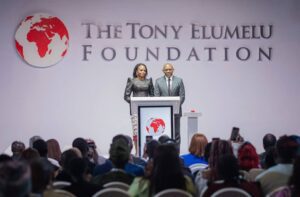
Source: Ghanaija
Mosi grew up in a small village in Kenya, where the lush green hills met the vast savannahs. He had always believed that love was the foundation of life. He often thought about the pillars that held this powerful emotion together. One evening, as he sat under the ancient baobab tree, he decided to write about his understanding of love.
The first pillar Mosi reflected on was trust. Trust, he believed, was the cornerstone of any meaningful relationship. Without it, everything would crumble. He recalled the story of his grandparents, Juma and Amani. They had been married for over fifty years, and their bond was unbreakable. Juma had been a fisherman, spending long days at sea. Amani managed the household and cared for their children. Despite the distance and the challenges, they trusted each other implicitly. Their faith in one another was unwavering, and this trust had carried them through the toughest times.
The second pillar, respect, was equally crucial. Mosi remembered his friend Zawadi from Tanzania. Zawadi had always been a source of wisdom and inspiration. She taught Mosi the importance of respecting one’s partner. In her own marriage, Zawadi and her husband, Bakari, treated each other as equals. They listened to each other’s opinions, valued each other’s contributions, and never belittled one another. This mutual respect was evident in every aspect of their lives, and it was the glue that held their relationship together.
Next, Mosi considered communication. Clear, open, and honest communication was vital in any relationship. He thought about his neighbors, Kwame and Abena, who lived in Ghana. Kwame was a teacher, and Abena ran a small market stall. They had been married for ten years, and their relationship was a testament to the power of communication. They discussed everything, from their dreams and aspirations to their fears and insecurities. This open dialogue allowed them to understand each other deeply and resolve any conflicts that arose.
The fourth pillar, commitment, was a concept that Mosi held close to his heart. He thought of his sister, Sifa, and her husband, Jabari, who lived in Uganda. Sifa and Jabari had faced many obstacles, including financial difficulties and health issues. Yet, their commitment to each other never wavered. They had made a promise to stand by each other, no matter what life threw at them. This unwavering dedication was the bedrock of their relationship, providing them with the strength to overcome any adversity.
Kindness was another fundamental pillar. Mosi believed that acts of kindness, both big and small, could strengthen any bond. He remembered his childhood friend, Ayo, from Nigeria. Ayo and his wife, Eniola, were known for their generosity and compassion. They went out of their way to help others, and this kindness extended to their relationship. They supported each other in every endeavor, celebrated each other’s successes, and provided comfort during difficult times. Their relationship was a beautiful example of how kindness could nurture and sustain love.
Finally, Mosi reflected on **forgiveness**. No relationship was perfect, and everyone made mistakes. The ability to forgive and move forward was essential for a lasting bond. He thought of his cousin, Nia, who lived in South Africa. Nia and her husband, Thabo, had faced their share of challenges. There had been misunderstandings and disagreements, but they always found a way to forgive each other. This forgiveness allowed them to learn and grow together, strengthening their relationship over time.
As Mosi finished writing, he felt a deep sense of satisfaction. He realized that these pillars—trust, respect, communication, commitment, kindness, and forgiveness—were not just abstract concepts. They were the principles that had guided his family and friends through their lives. They were the essence of love, providing a solid foundation for any relationship.
Mosi looked up at the stars, feeling a profound sense of gratitude. He knew that love was not always easy, but with these pillars, it was possible to build a relationship that could withstand any storm. He hoped that by sharing his thoughts, he could inspire others to reflect on the core pillars of love in their own lives.
In the weeks that followed, Mosi’s writings became a source of inspiration for many in his village and beyond. People from different parts of Africa, from the bustling streets of Lagos to the serene landscapes of Namibia, resonated with his words. They began to reflect on their own relationships, striving to incorporate these fundamental pillars into their lives.
Mosi continued to write, sharing stories of love and resilience from across the continent. His work brought people closer together, fostering a sense of unity and understanding. Through his words, he reminded everyone that love, in its truest form, was built on a foundation of trust, respect, communication, commitment, kindness, and forgiveness. And with these pillars, love could thrive and flourish, creating a brighter, more compassionate world for all.






